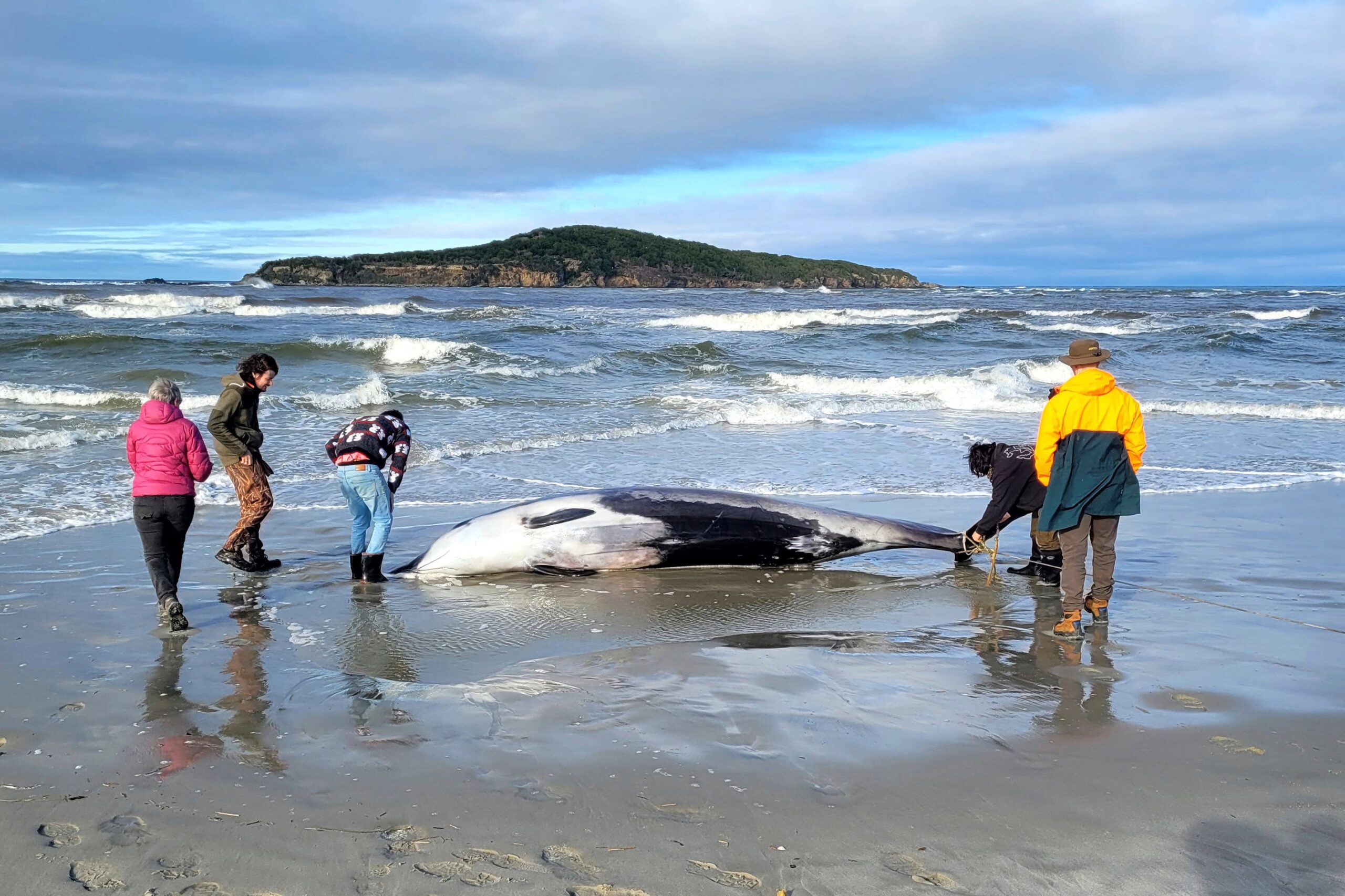World
Rare Spade-Toothed Whale Discovery Astounds Scientists in New Zealand

A remarkable discovery has left scientists in New Zealand astounded as a rare spade-toothed whale washed ashore on the country’s South Island, near the coastal town of Taieri Mouth. The Department of Conservation (DOC) was alerted by locals, leading to a significant find that has experts eager to learn more about this elusive marine mammal.
The male spade-toothed whale, measuring around five meters in length, is a member of the beaked whale family, known for its deep-sea nature and mysterious behavior. With only six documented sightings in history, this intact specimen presents a rare opportunity for in-depth analysis.
Gabe Davies, the DOC Coastal Otago operations manager, highlighted the importance of this discovery, emphasizing the scarcity of knowledge surrounding spade-toothed whales. Describing them as one of the most poorly understood large mammalian species, Davies underscored the scientific and conservation significance of this find.
Authorities, including representatives from the Otago Museum and the University of Auckland, worked together to document the whale, which has distinctive color patterns and unique anatomical features. Genetic samples have been collected for further analysis, a process that could take months due to the complexity of identifying this rare species.
The spade-toothed whale’s habitat and habits remain shrouded in mystery, with previous specimens discovered in New Zealand and Chile offering limited insights into their lives. Conservation efforts are now being discussed, taking into account the cultural significance of whales to the Indigenous people of New Zealand.
Te Rūnanga ō Ōtakou, in collaboration with the DOC, will lead discussions on how to honor the whale in alignment with Māori traditions, recognizing it as a taonga, or treasure. The journey ahead involves a shared endeavor to learn more about this enigmatic species using both scientific research and traditional knowledge.
While whale strandings are not uncommon in New Zealand, this discovery stands out for its rarity and potential to expand our understanding of marine biodiversity. As scientists await the results of DNA testing and further analysis, the world eagerly anticipates the new insights that this spade-toothed whale may unlock.
This report was filed from Los Angeles, where the global significance of this discovery reverberates across scientific communities, conservation efforts, and Indigenous narratives worldwide.












